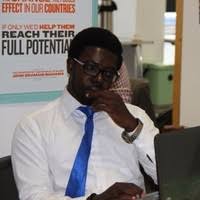
Overreliance on retained Internally Generated Fund (IGF) to procure goods and services is compelling health institutions to surcharge clients.
“Indeed, as a result of this concern, many health facilities tend to focus their efforts on providing specialist services instead of providing primary health care services as this brings in more funds.
If left unchecked, progress and efforts to achieve universal health coverage (UHC) in Ghana by 2030 will stall or be eroded.”
This was contained in a joint statement issued by the Alliance for Reproductive Health Rights (ARHR), Universal Access to Health Care Campaign and Primary Health Advocacy Coalition with funding from OXFAM Ghana and PAI, a global organisation advancing the rights to affordable quality contraception and reproductive care for every woman everywhere.
The group had met to assess Ghana’s 2020 budget statement and review allocation to the health sector in the Primary Health Care context and to establish governments commitment or otherwise to attaining Universal Health Coverage and the SDGs 3 and 5.
The three groups observed that given the reduction in development partners’ contribution to the health sector in the last few years, government ought to focus on developing a domestic resource mobilisation strategic for the health sector.
The groups said a roadmap on health financing in the country was urgently required to support the NHIA in its efforts to reduce out-of-pocket payments for health services and to facilitate efforts to improve citizens’ access to health services.
They proposed increasing health taxes on sugar, alcohol, plastic and tobacco and increasing the percentage of VAT and health levies paid by multinational companies that produce soft/soda drinks, alcoholic beverages, and tobacco as the way forward.
Nii Ankonu Annorbah-Sarpei, the Director of Programmes at ARHR, recounted that since 2017, government has invested GHC468 million in allowances for 49,000 trainee nurses.
These funds, Nii Annorbah-Sarpei, who is also Campaign Coordinator for Universal Access to Health Rights, said could have been used in a more strategic way by using it to support nurses to take up training in areas of specialised nursing where there are real needs for health personnel.
These include, midwifery, paediatric nursing, anaesthetist nursing, mental health and psychiatric nursing etc.
The Programmes Director of ARHR said while government has fulfilled its promise to review the Ministry of Health’s Human Resource Policy to help address the human resource challenges in the sector, it would be prudent to tie in the nurse trainee allowances to areas of real need.
“Government must rethink and prioritise its investment and allocations to Capital Expenditure (CAPEX) if it intends to achieve the universal health coverage (UHC) target within the timeframe.
The CHPS model is one of Ghana’s PHC model to ensure that no one is left behind in national efforts to achieve UHC yet little or no attention is being made to strengthen CHPS infrastructure development and equipment of facilities with requisite logistics and tools to improve access to health at the community level,” Nii Annorbah-Sarpei said.
He urged government to complete all unfinished or uncompleted CHPS projects instead of focusing on building new infrastructure.
The Programmes Director of ARHR lauded government for its continuous interest and desire to achieve UHC in the country, adding that government’s commitment was evident in the 2020 budget statement read by the Minister of Finance.
GNA







